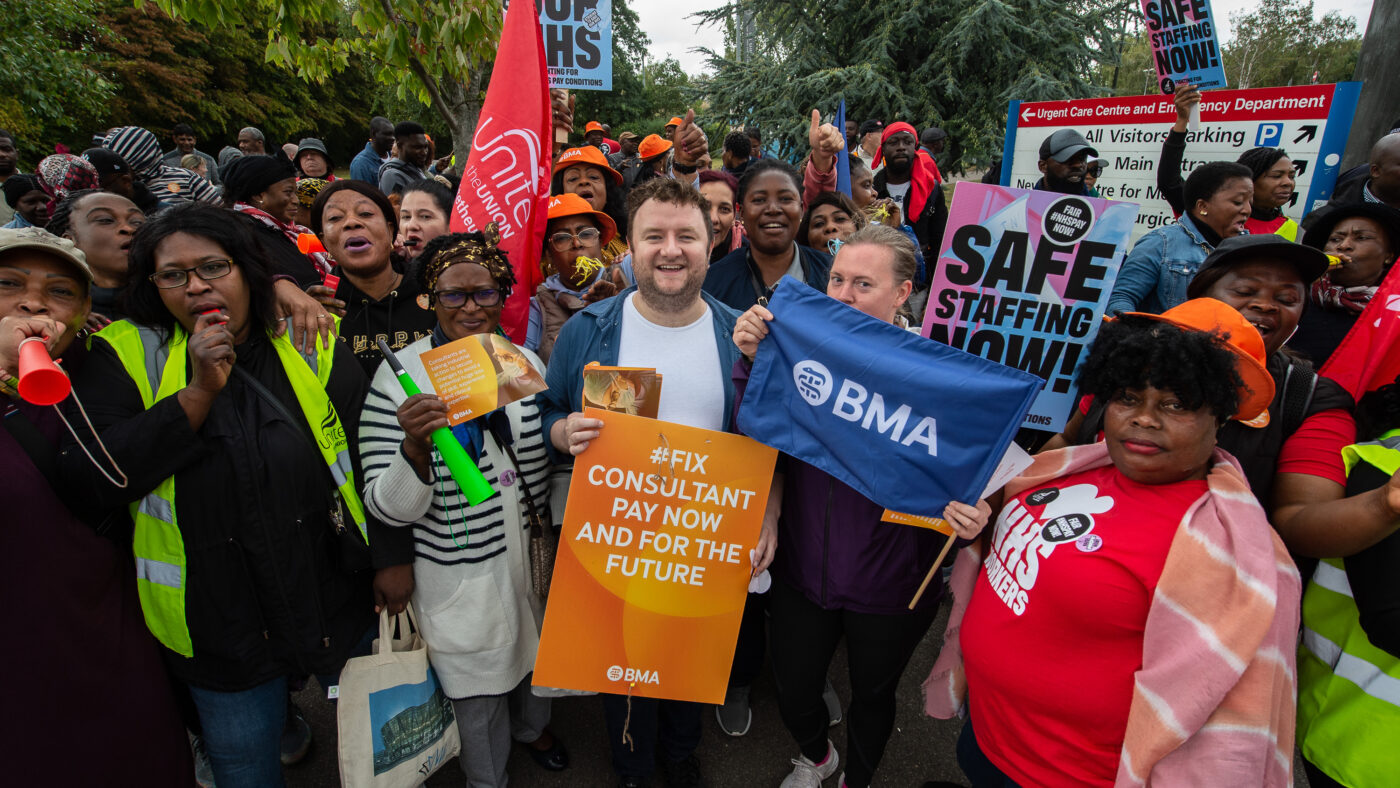Our absurd fascination with a louche and talentless show-off’s sexual transgressions has chased more important news off the front pages and social media. Millions of people are suffering from unacceptable delays to important medical treatment, and some may well die as a consequence. This is a real scandal. But we prefer to gossip about the trivial, speculating about ‘he said-she said’ affairs which should either be the concern of the police, if laws have been broken, or just that of the parties involved.
There is no end in sight for the doctors’ strikes, which are an important cause of many of the serious treatment delays affecting patients in a health service apparently impervious to reform. They have returned with a bang, and today, consultants join the not-really-so-junior doctors on the picket lines. Unless there is some major initiative, they will return at the start of October, in a blatantly political attempt to overshadow the Conservative Party Conference.
Health Secretary Steve Barclay is now threatening to add NHS doctors and nurses to the list of those who must provide a minimum level of service during strikes. The unions regard this as a breach of their human right to withdraw their labour, and have reported the government to the International Labour Organization [ILO]. This is just gesture politics as the ILO won’t intervene. Provisions for compulsory minimum service agreements [MSAs] are found in many other countries, while outright bans on strike action in some sectors are commonplace across the developed world.
The Minimum Service Levels Act, which completed its Parliamentary passage in July, allows the relevant Secretary of State in a number of areas to make MSA orders for a range of specific sectors. But I wonder whether any such agreements will ever be put into practice. They have hardly been used in countries which have similar laws, and where they have been used they’ve sometimes been simply ignored by the unions, with little comeback. Consultation and timing rules make MSAs a clumsy instrument, which in practice will face a flood of legal challenges.
The government may huff and puff about MSAs and perhaps Mr Barclay can get them to work, but it won’t be in time for this round of strikes, or the next one. Maybe, if doctors can’t be shamed into moderating their absurdly over-the-top pay claims and the dispute continues into next year, we might see an MSA ready somewhere around next summer. But by then election fever will be raising temperatures faster than a new Covid outbreak, and all bets will be off.
Talking up the prospect of MSAs is classic displacement activity. The government can do nothing now, at this late stage of its life, which might permanently reduce the threat of strikes in the health service. The nuclear option, of course, would have been a complete ban on NHS strike action. This would cause union leaders to spontaneously combust, but is the principle any different from that which forbids police or the armed forces or the prison officers from striking?
Less extreme options are potentially available. The Agenda for Change pay review body, setting pay for 1.4m workers at one go, needs to be scrapped. If so, we could end national bargaining, and move to a situation where pay is devolved to regional or even local levels. We have seen how separate arrangements for Scotland have led to settlements there. We could go for a genuine mixed economy of insurance-based health service providers which could offer medical staff a range of different deals. We could restructure pay and pension arrangements to give doctors the option of higher pay or higher pensions. If all else fails and there are still going to be strikes, we could give the government power to impose arbitration after a dispute had gone on for too long – as we did in wartime.
But nothing like this is going to happen. We are going to stagger on as we are, with taxpayers languishing on waiting lists while doctors hold out for a stonking pay increase which isn’t going to happen under this government, MSAs or no MSAs. And if the BMA is hoping that Keir Starmer will ride over the hill with a bag of gold at his side, that ain’t going to happen either.
Click here to subscribe to our daily briefing – the best pieces from CapX and across the web.
CapX depends on the generosity of its readers. If you value what we do, please consider making a donation.


